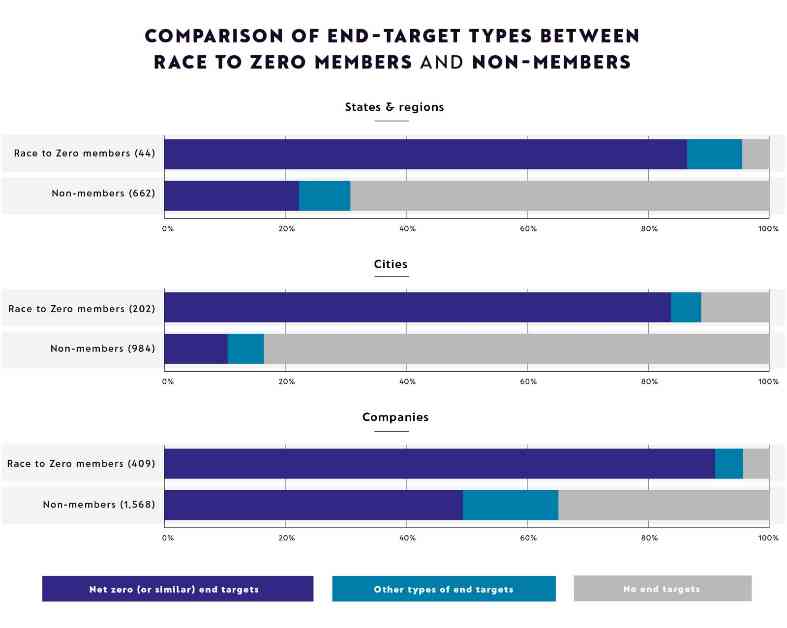The Net Zero Stocktake 2024 report highlights the importance of regional governments in driving the next phase of national carbon-cutting plans. The report reveals a commitment gap among cities, states, and regions, hindering the much-needed transition to a low-carbon economy.
According to the Net Zero Tracker, there has been a modest increase in net zero targets set by subnational governments over the past year. Currently, 26% of states and regions and 23% of major cities have set net zero targets. This represents a significant population coverage, with high-income countries leading the way in setting city-level net zero targets.
While the initial focus of the net zero journey was on setting national targets and aligning companies with the Paris Agreement, today, net zero targets have become mainstream at the country-level and within the corporate sector. Nations and self-governing territories now account for a large percentage of global greenhouse gas emissions, GDP, and population.
Some positive developments can be seen in the subnational governments of major emitting nations. For example, regions in India have set earlier net zero target years than the national target of 2070. In the United States, several states have set net zero targets, with some aiming for earlier target years than the federal government’s 2050 goal.
Despite these advancements, the report emphasizes the need for all cities, states, and regions to translate their authority into clear net zero plans. Subnational governments play a crucial role in establishing and enforcing regulations related to climate action, which can send a strong signal to markets and elevate ambition at the national and global levels.
Companies like Volvo Group and Google, as well as countries like Costa Rica, are leading the way with innovative net zero strategies. Peer learning and sharing best practices will be essential in shaping effective net zero strategies that align with the latest scientific insights and developments.
While there has been an increase in the number of robust non-state net zero targets and implementation plans, there are still gaps in target integrity across companies, cities, and regions. Only a small percentage of entities meet the integrity criteria for net zero commitments, highlighting the need for more rigorous and transparent target-setting.
The Race to Zero campaign, involving 14,500 non-state and subnational entities, is playing a crucial role in driving net zero target-setting integrity. However, over 40% of major non-state entities are operating without emissions reduction targets, leaving countries and global supply chains vulnerable to transition risks.
In conclusion, incentivizing and supporting companies and subnational governments to set rigorous net zero targets and plans can enhance the credibility of national climate goals. Collaboration between governments, businesses, and local authorities is essential in achieving a sustainable and low-carbon future.
